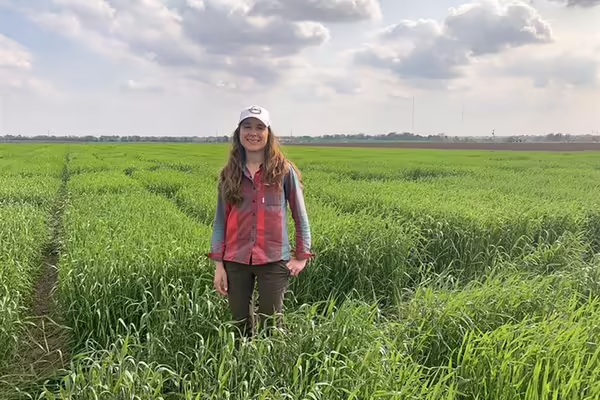
URBANA, Ill. — Summer is back, which means the University of Illinois Urbana-Champaign will return with its Agronomy Days series, where Illinois growers can learn more about the latest productivity, profitability, and sustainability breakthroughs developed by experts. Hosted by the Department of Crop Sciences, the College of Agricultural, Consumer and Environmental Sciences, and Illinois Extension, Agronomy Days kicks off this month, followed by events scheduled through September.
“The Agronomy Days series carries forward our decades-long tradition of Agronomy Day, with an emphasis on reaching a wider audience,” said Adam Davis, crop science department head. “We’ve intentionally scheduled events across the growing season and in multiple locations to highlight what’s happening in the field and make it easier for growers and other attendees to fit these continuing education opportunities into their busy schedules.”
Agronomy Days 2025 starts with a Small Grains Field Fest from 3 to 6 p.m. on May 23 at Riggs Beer Company at 1901 South High Cross Rd. in Urbana.
Additional events will feature field days, on-farm tailgates, and research tours through the summer. Some events will include light refreshments, while others will give attendees a behind-the-scenes peek at crop science and research in action. The College of ACES will continue to add new and exciting events throughout the season, so be sure to bookmark the Agronomy Days calendar, watch ACES’ social media, and check back often.
Read the full article from the College of ACES.
University of Illinois Extension develops educational programs, extends knowledge, and builds partnerships to support people, communities, and their environments as part of the state's land-grant institution. Extension serves as the leading public outreach effort for University of Illinois Urbana-Champaign and the College of Agricultural, Consumer and Environmental Sciences in all 102 Illinois counties through a network of 27 multi-county units and over 700 staff statewide. Extension’s mission is responsive to eight strategic priorities — community, economy, environment, food and agriculture, health, partnerships, technology and discovery, and workforce excellence — that are served through six program areas — 4-H youth development, agriculture and agribusiness, community and economic development, family and consumer science, integrated health disparities, and natural resources, environment, and energy.